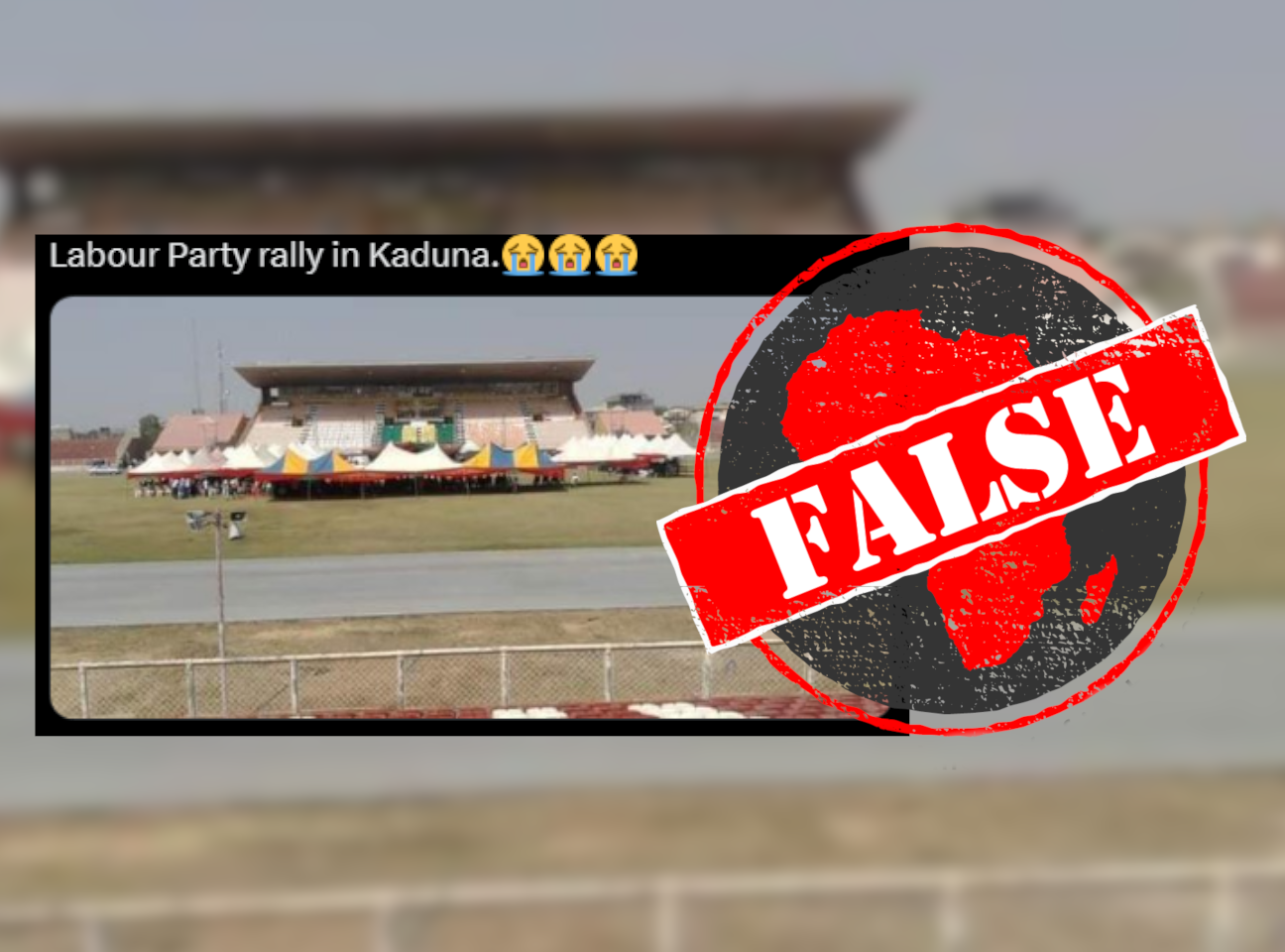IN SHORT: Social media users in Nigeria have posted a photo of an empty stadium, claiming it shows a disappointingly small crowd gathered for a Labour Party rally in the northern state of Kiduna, ahead of February 2023 elections. But there’s no evidence for when the photo was taken.
A tweet suggests a January 2023 rally held by Nigeria’s Labour Party in the northwestern state of Kaduna was a flop.
The party’s presidential candidate, Peter Obi, and his running mate, Datti Baba-Ahmed, held a rally in a stadium in the state capital Kaduna on 18 January.
This was part of campaigning ahead of the country’s presidential elections scheduled for 25 February.
The photo posted with the tweet shows an empty stadium. “Labour Party rally in Kaduna,” the tweet reads. The same photo and claim have also been posted on Facebook here, here, here and here.
Several political parties and politicians have already visited the battleground state while campaigning. But does the photo really show a poorly attended Labour Party rally? We checked.

No evidence photo shows stadium during Labour Party rally
Baba-Ahmed is from Kaduna. In Nigeria, where religion and ethnicity are key factors in electoral politics, the Labour Party has sought to bolster Obi’s profile in the northern states, which are majority Muslim.
Obi is a Christian from the southeast.
The tweet doesn’t give a source for the photo, and the account has not replied to Twitter users who suggested the photo was taken immediately after the stage was set up, ahead of the party’s arrival, and not during the rally.
A reverse image search for the photo did not return any results.
But there’s evidence that Obi and Baba-Ahmed had support when they arrived at the Ahmadu Bello Stadium.
There has been extensive media coverage of the rally. A video of the event shows a sizable crowd.
Africa Check has checked several false claims about crowd sizes in election campaign rallies before, as published here, here, here, here and here.
These kinds of claims are often used in disinformation, where the implication is that the candidate with the biggest crowd has the best chance of winning the election.
For more tips on how to avoid falling for false information, read our guide on how to determine if a piece of information is correct or not.
Republish our content for free
For publishers: what to do if your post is rated false
A fact-checker has rated your Facebook or Instagram post as “false”, “altered”, “partly false” or “missing context”. This could have serious consequences. What do you do?
Click on our guide for the steps you should follow.
Publishers guideAfrica Check teams up with Facebook
Africa Check is a partner in Meta's third-party fact-checking programme to help stop the spread of false information on social media.
The content we rate as “false” will be downgraded on Facebook and Instagram. This means fewer people will see it.
You can also help identify false information on Facebook. This guide explains how.


Add new comment